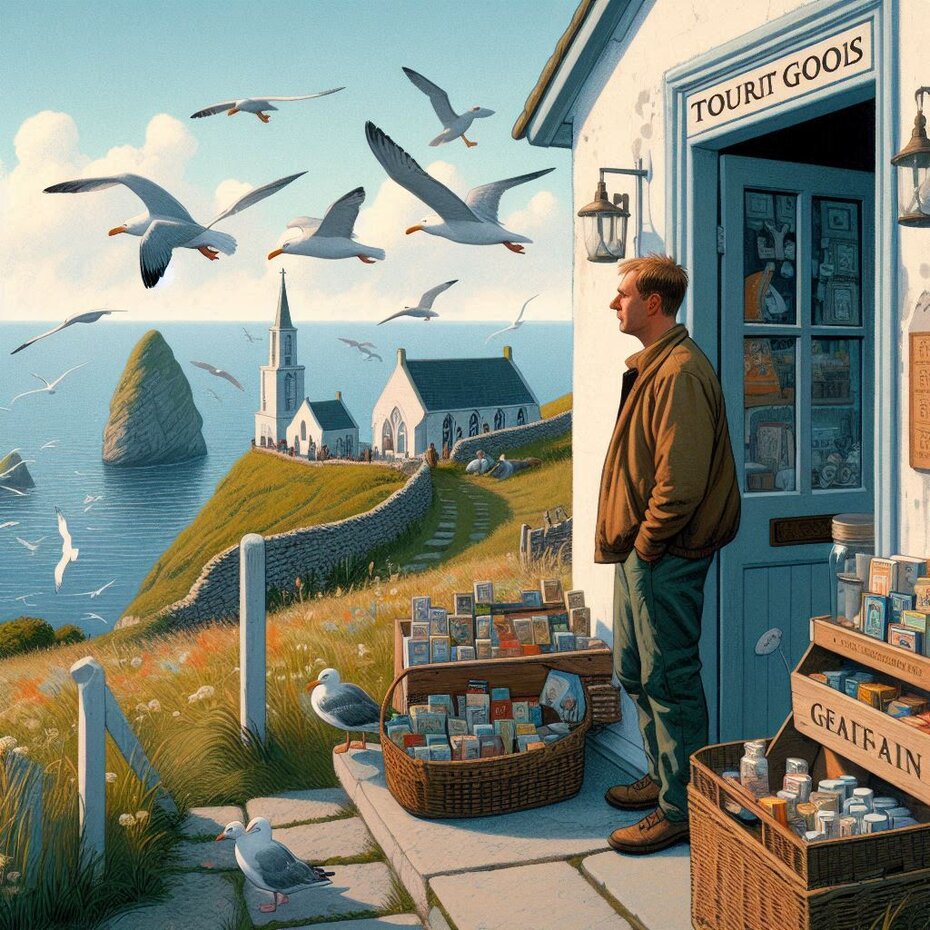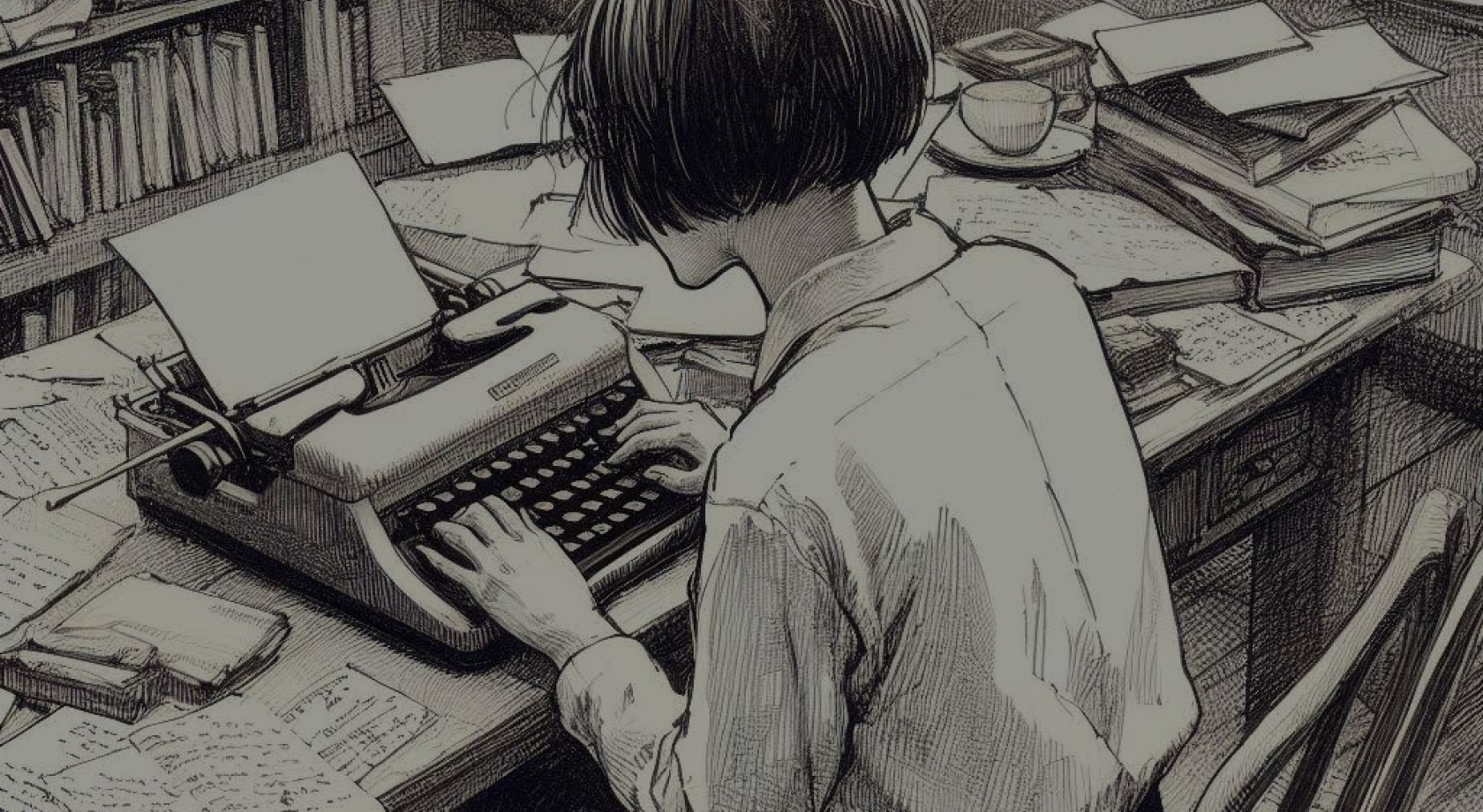The albatross
A walk along the beach in the off-season leads to ramblings about the importance of paying attention to the signs to know when it's time to change the course of our lives.
 This morning I walked down the slope to the house where I'm staying with my hands stuffed in my pockets, shivering with cold. “Where's the warmth that the weather forecast had promised for this week?” I asked myself. Earlier, I'd struggled to find anything in my suitcase, full of bikinis, kangas and other beach gear, to shelter me from the cold that had hit the brazilian south coast.
This morning I walked down the slope to the house where I'm staying with my hands stuffed in my pockets, shivering with cold. “Where's the warmth that the weather forecast had promised for this week?” I asked myself. Earlier, I'd struggled to find anything in my suitcase, full of bikinis, kangas and other beach gear, to shelter me from the cold that had hit the brazilian south coast.
Even on such cold days, the beach has its charm. The tourists disappear, the restaurants close due to the lack of movement, and there are only fishermen and workmen left to prepare the summer houses for the arrival of summer. Today I feel as if all this vast expanse of sky and sea belongs to me.
I bundled up as best I could and went for a walk through the streets of the resort. Nothing like wearing out the soles of your shoes to get to know a place! I went in and out of the few shops open on the main street, enjoying the attention of the vendors, who, bored with the slow movement, were trying to find a subject of mutual interest and thus have company to kill time.
I walked down the shopping street towards the sea and then along the beach, peering through the windows fogged up by the sea air into the little houses that were once the humble homes of fishermen. Some now house art galleries and antique shops. In some places, the space between the houses is occupied by a boathouse, where the waves of the sea today advance calmly, without disturbing even the seagulls that pass by. I lose myself in imagining that same scene on a stormy night, with the waves crashing wildly against the walls of the houses facing the sea. A cold shiver pulls me out of this reverie.
At the end of the beach, where the path climbs a hill towards the little village church, I stop for a moment to watch the fishermen disembarking from their canoes carrying their catch. While the restaurant workers and tourists wait for them to clean the fish's entrails and scales, the birds and cats wait patiently for their turn to be attended to. Today, however, the fishing has been poor and the few scraps that are thrown on the ground are fought over to the sound of excited squawking.
Next to the parish church, a meeting place for believers and those interested in sacred art, there is a little shop selling knick-knacks where their unfaithful companions wait patiently. When I enter, the warmth emanating from this wind-protected environment envelops me like a blanket. The feeling of well-being that spreads through my body reaches my hands, which leave my pockets and curiously fiddle with every object on display under the watchful eye of the owner. I notice a middle-aged man with disheveled hair and a wool sweater of an undefined color. Standing there behind the counter, surrounded by shells, miniature boats and lighthouses, and fridge magnets, he seems to be part of the scene. I receive an encouraging smile and resume my inspection of the little shop.
My gaze rests on a cross covered in an intricate arrangement of very white shells. I ask the owner if the craftsman is local. He tells me that he is, but that he doesn't know where the artist currently lives. The cross has been left behind, waiting for a buyer to appear, but they haven't been interested in crosses for a long time. Today they prefer the mirrors and Christmas garlands on display in the honored space by the store entrance.
On my way out, I bump into the salesman again, who is standing by the door, looking desolate at the sea.
- Do you see the albatross resting on the surface of the sea, next to the flock of seagulls? It's been there since early this morning,” he tells me in distress.
I follow the direction of his gaze and see a bird with darker feathers than the others, floating alone at the mercy of the waves, a few meters from the beach.
- What's wrong with it? I ask.
- Albatrosses aren't meant to stay in the sea for long. They have small legs in relation to their body size, making it difficult for them to maneuver in the water. They also lose their heat to the water. But on calm days, like today, they can't take off again and are stranded at sea, at the mercy of predators. In order to take off, there must be rising wind currents.
- Why doesn't he swim to the beach, where he could run on the sand until he gains enough speed to take off?
- He's afraid of the people walking along the beach. If the wind doesn't change, he'll end up dying...
I said goodbye to the vendor, who remained vigilant, his eyes still fixed on the lone bird. Perhaps he identifies himself with the bird on its lonely journey, perhaps he too feels that he is nearing the end of his life, I ponder.
As I walk home with a heavy soul, my mind occupied with deciphering the drama of the man and the albatross, I look back one last time. The bird is still there, as if waiting for a sign, a school of fish, or just a change in the wind. There are times in life when we need to pay attention to the signs to know when it's time to take flight.
Translated with DeepL.com (free version)
Voltar
